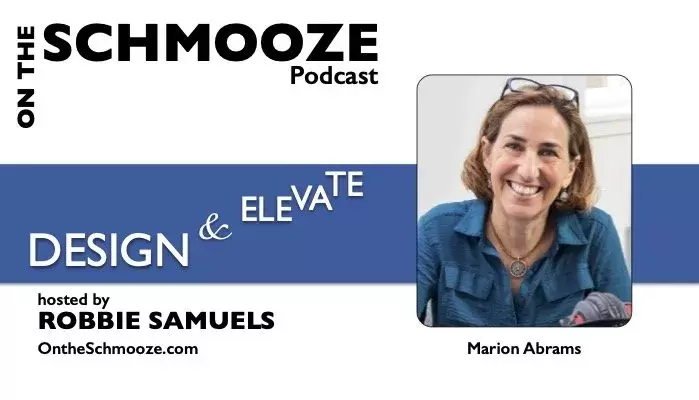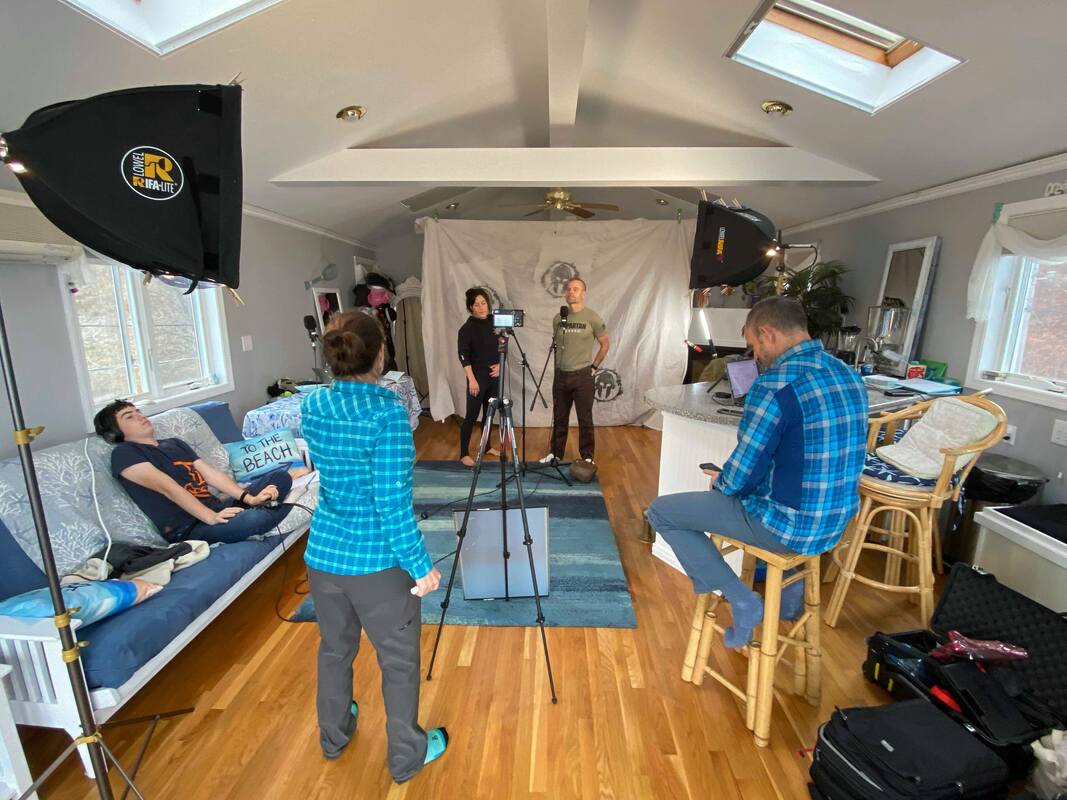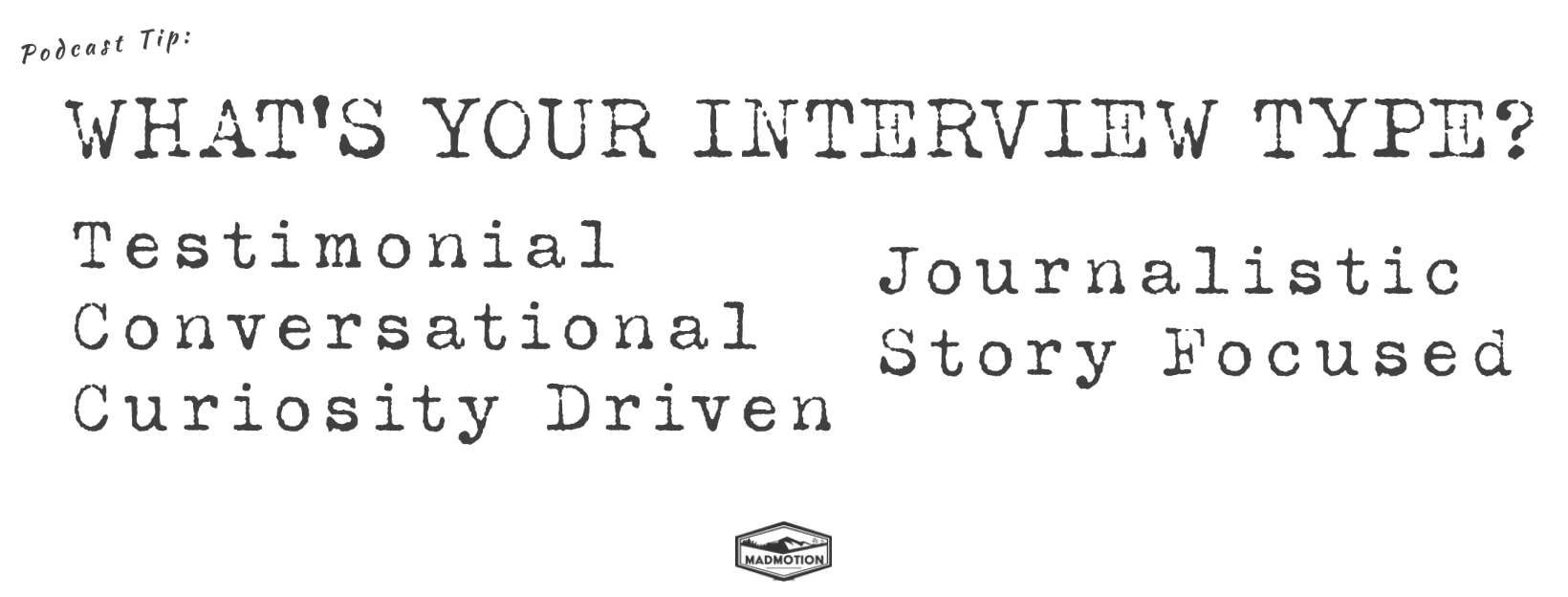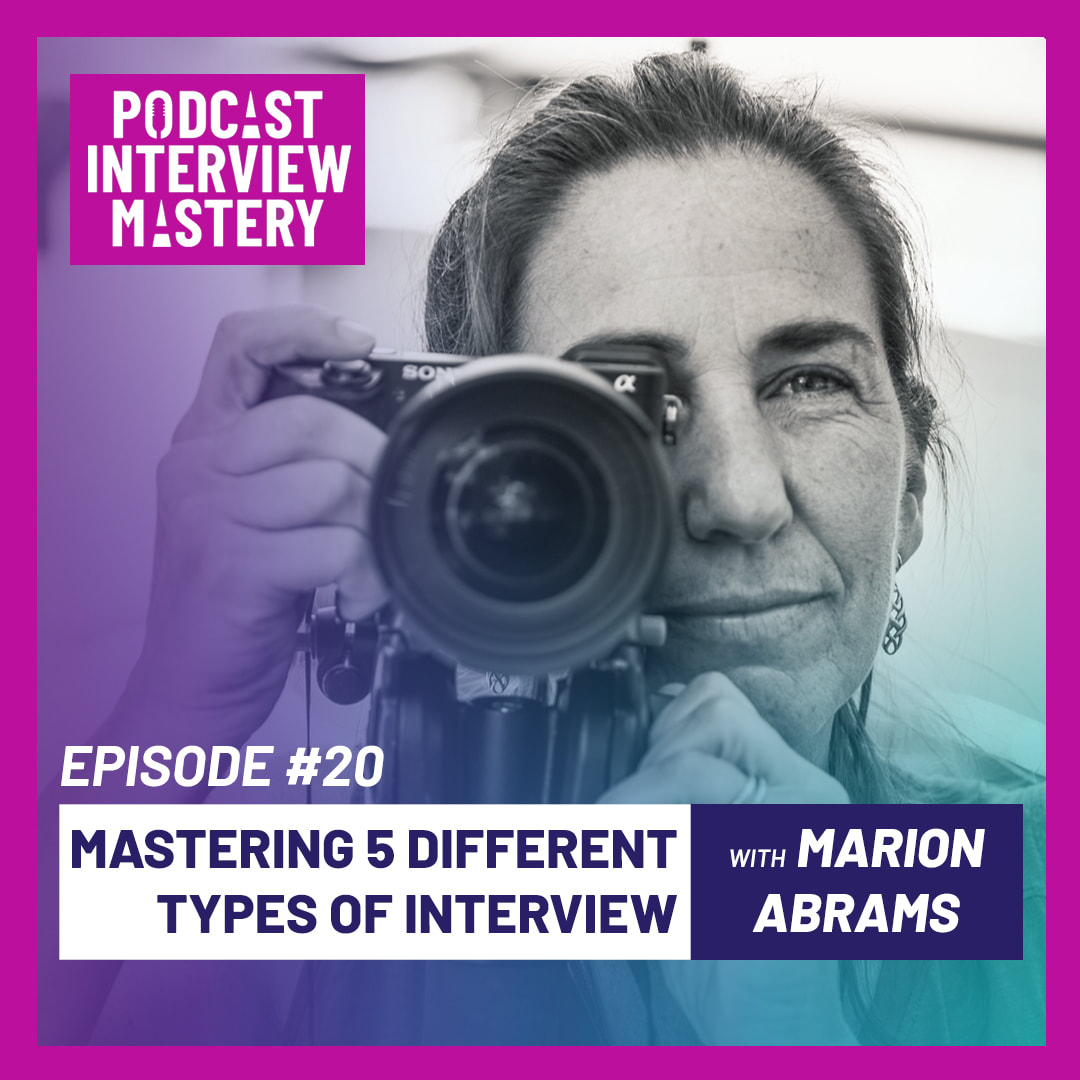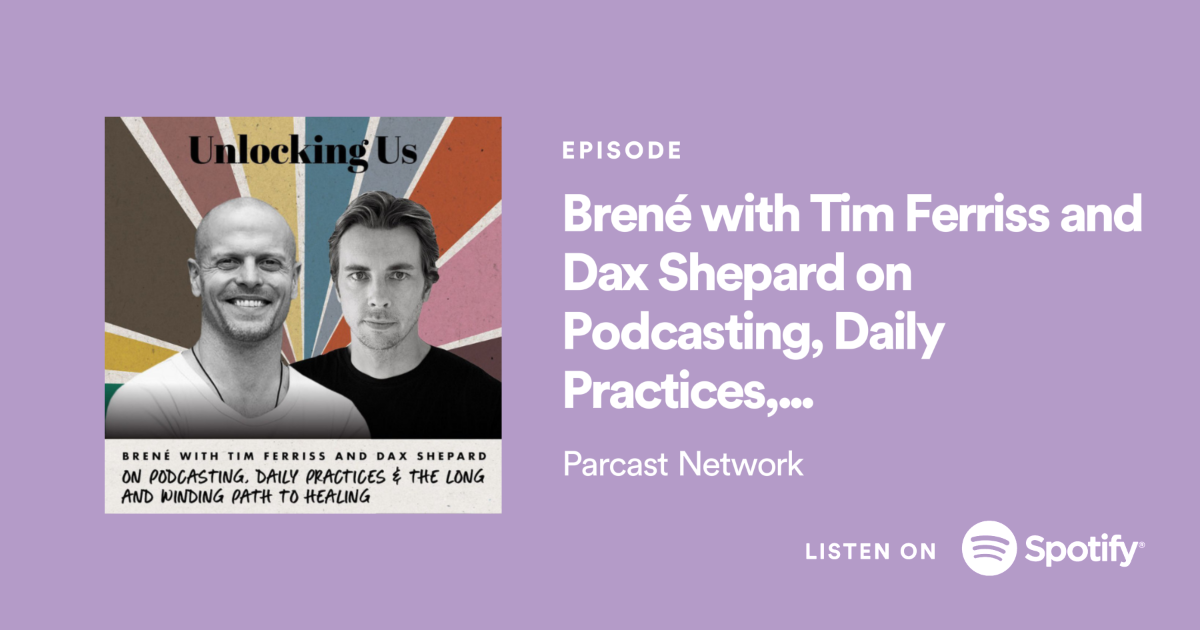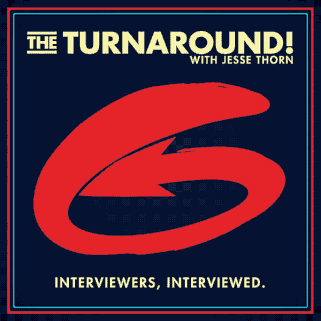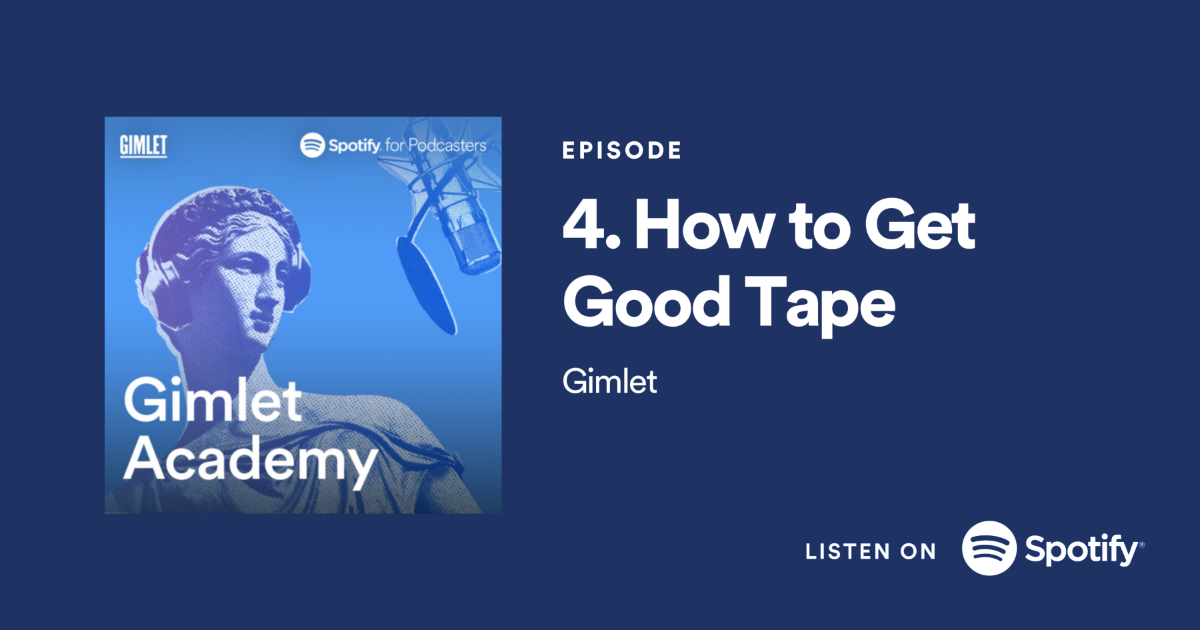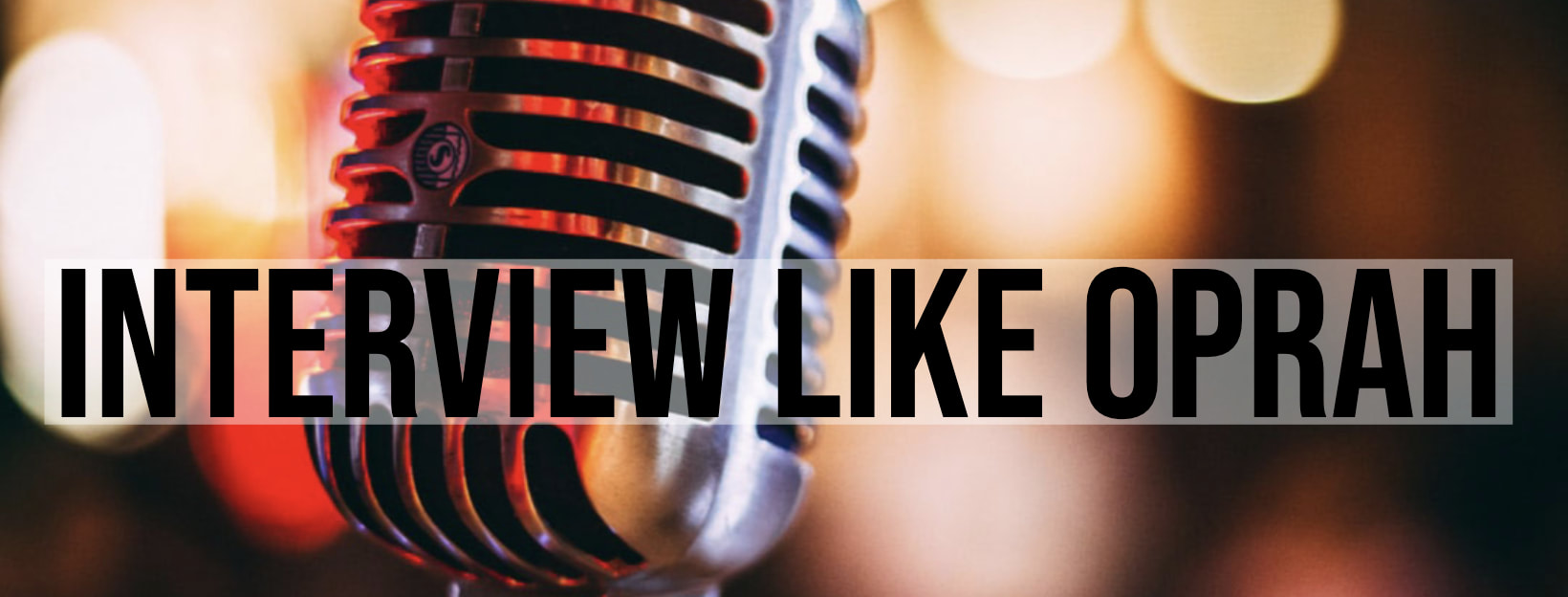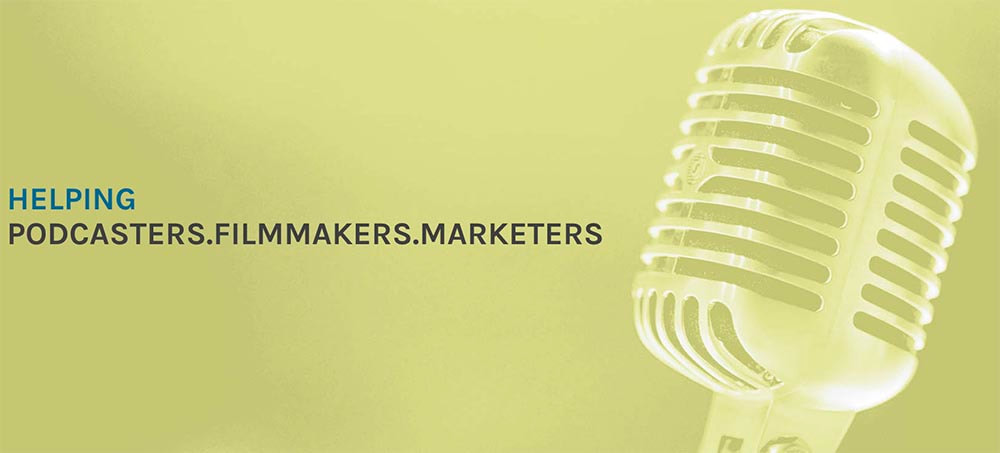|
I LOVE being a guest on podcasts. No for the "exposure," but because it helps me be a better podcaster and a better podcasting coach. I see everyone's systems - there are a lot of great one's out there - AND I have an opportunity to hone my message, my library of stories, and my speaking skills. I see what questions people have, and what they are thinking about. AND ... bonus ... how many times have you wished you could listen back to a conversation and think about what you did well and what you could have said better? With these podcasts I can. I'm honored that both Robbie Samuels and O’Brien McMahon took the time to create these shows and allow me to join them. On the People Business Podcast we talked about: -> Whether everyone should be their own content creator? -> How does someone determine a good resource from a bad one? (how to spot the BS) -> Advice for someone dealing with the angst of starting to build a presence online? -> How to think about showing different parts of your persona online. -> Exercises to help people find their voice -> Aligning yourself as a person with the business content you put out -> My system of 5 P’s and more On the On the Schmooze Podcast we talked about:
-> Leadership: “Leadership is keeping everyone focused on the ultimate goal” -> Lessons from life in a small town -> The BEST library story you might ever hear in your life -> How and why I started podcasting -> The importance of knowing and understanding goals along with the resources available to you -> How to create a truly engaging experience for both your podcast guest and your audience. In the digital age, you're not just competing with your neighborhood. You're competing with everyone in the world. So how do you win? Double down on being you. The world doesn't need another Gary V or another Oprah. Gary V is the best Gary V there will ever be. Oprah is the best Oprah there will ever be. But only you can be the best you.
That's the second P in the 5xPs of podcasting, Point of View. Even if you are one of 30 podcasts about crocheting, when you find your voice yours will stand out. Double down on you! ----- Photo by Andrea Hagarty | Pictured: Marion Abrams, Joe De Sena, Sefra the Seedhuntress, "Dr" Johnny Waite and my son the sound recorder. The single most important driver of a successful recorded interview is an understanding of your goals as an interviewer. To begin, it helps to recognize that there are five types of interviews. We've defined them as the 5 interview lessons interview types:
In a testimonial style interview, the goal is to record a client or customer expressing satisfaction with your services or product. Most often your interview subject is not used to being on camera. The challenge is to get the exact content you're looking for while making sure it feels comfortable and natural. Conversational These are most often heard in podcasts or talk shows. In the conversational interview, the audience is as interested in hearing the guest as they are the host. The challenge here is to build rapport, to think on your feet, and keep a good sense of balance between remarks, questions, and follow-ups. Curiosity Driven In this style interview, the goal is discovery. You don't know where the interview will lead and are only interested in following the natural flow of discovery. For this, the most important skill is deep listening and curiosity. Journalistic The journalistic or documentary interview is one in which you don't already know the answers, but you do know exactly what you hope to learn. For this interview, you will want to have a solid outline and strategy in place before you begin. You may need to pause and check your notes to be sure you and your guest stay on track. For this style of interview, the biggest challenge is to keep the guest on track and make sure you get the information you are looking for on tape. Story Focused In a story-focused interview, your guest has a story to tell. Most likely something they have achieved or endured. Your job is to facilitate the telling of a rich full tale. You are the guide to help elicit detail, fill in gaps, and keep the story moving. Tactics For each style interview, your tactics will differ. No matter what style (or combination of styles) you use, before you approach your guest be sure you know exactly what you are looking to achieve. I'll leave you with a final thought from interviewer Terry Gross: "I learned that I never really know the true story of my guests' lives, that I have to content myself with knowing that when I'm interviewing somebody, I'm getting a combination of fact and truth and self-mythology and self-delusion and selective memory and faulty memory." Thank you Tibor for inviting me to join you on your podcast "Podcast Interview Mastery."
BIGGEST TAKEAWAYS FROM THIS EPISODE 1 – Learn more about the 5 different types of interview so that you can develop your own style. 2 – Learn more about the 4 keys to conducting better interviews. 3 – Learn why it is important to show your personality as a host in interviews and how to do it. To listen, click here. There is so much information about HOW to launch a podcast, choose the best microphone, the best hosting platform, the best growth tactics - that it's easy to loose track of the essentials. How do you make a BETTER podcast? NUMBER ONE If you haven't heard it yet, there's a great conversation between Tim Ferriss ("Tim Ferriss Show",) Dax Shepard ("Armchair Expert Podcast",) and Brene Brown ("Unlocking Us with Brene Brown,") where they talk about how they think about interviewing and how they prepare. One of the things I love about this is the reminder that there are a lot of different ways to think about interviewing, and you need to find and develop what works best for you and your audience. Listen to the first 15 minutes of this episode for a look inside the minds of these three expert podcast interviewers. NUMBER TWO "The Turnaround" features interviews with some of the interviewing GREATS, like Ira Glass, Mark Maron, Brook Gladstone, and Terry Gross. The podcast series was created by the Columbia School of Journalism and digs into every element of interviewing - from prep, to question selection, to interview process. You can read transcripts or listen to the conversations here. NUMBER THREE We don't use "tape" anymore, but in the radio business "good tape" means good recorded content. In the podcast series "Gimlet Academy" host Alex Blumberg shares lessons, gained from 20 years of working in audio, about what it takes to produce a podcast episode that entertains, educates, and connects with listeners on an emotional level. Episode four, called "How to Get Good Tape" focuses on the interview. Watch the video for nuggets of podcasting wisdom. At the Guinness world record-breaking Podfest Global Expo event we ran an afternoon conference for and by Fitness and Self-Improvement Content Creators featuring Gabby Reece "The Gabby Reece Show," Mark Divine "Unbeatable Mind," Matt B. Davis "Obstacle Racing Media," Anders Varner "Barbell Shrugged, Dr. Lara Pence "Spartan Mind" and "Curious Minds Podcast," and moderated by Marion Abrams producer of "Spartan Up Podcast" and founder of Madmotion. Gems of wisdom from the guests, including a quick intro by Chris Krimitsos founder of Podfest Global Expo. I hope to find more ways to serve the Fitness & Self-Improvement Creator community, if you'd like to stay in touch drop your email HERE. Here's the full text:
Chris Krimitsos 0:00 What's cool is all of us are focused on something positive, helping each other. While people are basically going through different phases of quarantine globally, how are you feeling? basically putting this together Marian? Marion Abrams 0:18 I feel grateful. I mean, I just forgot how smart and inspiring the group of friends that I have collected since I started podcasting. And since we started inviting other podcasters into the circle has been and why I I just love listening to them. And I think expanding beyond the fitness space and being part of the pod fest global Expo has been a really great opportunity. So I thank you, Chris for for setting this up. Dr. Lara Pence 0:46 One of the phrases that I like to use and probably this will come as no surprise to individ any individual that's ever been in therapy is I like to use the phrase. So what I'm hearing you say is and what that allows is for the, for the guests to feel really heard to feel like you're there with them, not just that you're worried about your next question. And when the guest trusts you, because they know that you're listening, they're more willing to go there with you. And so and so what that can do then is not only it helps build trust and rapport with your guests, but it also then allows them to go that one step further, right. Gabby Reece 1:31 I realized that there was a part of me that was dreading doing a podcast on my own. If I can be really honest, I thought, well, I could probably do 10 and then I probably be boring and I don't know and this is like 25 years into it. So the other point that I want to share with you is, is this idea of really trusting yourself, which is hard to do. So I will do an interview last week or next week, and before the interview, I will always think, okay, I've done my homework, which is obviously really important. And I hope it goes, Okay. And then when they leave, I always think I hope that I hope that we had a good show and that that I remember also all the things that I should have asked. So you're always going to feel that way. And I want to remind you that whatever conversation needed to be had at that moment, on that day was the one that you were supposed to have. Matt B. Davis 2:27 It's gonna come out pretty clearly if you care about what you do. Early on, in the process of me doing this show... I would have people say, you know, we really like what you're doing because you actually care about the sport. You're not just reporting on it. And I thought, well, how is there any other way to do it? I mean, to me that was like, why would I be here, like, I guess to try to make a book, which there wasn't much books to be grabbed, but to me, it just, it just made sense to do that. Anders Varner 2:58 My attention to fitness has to be delivered to the people that I'm talking to, in a manner that resembles my life and the thing that I'm learning about because I want them to go on the journey with me, I want them to feel like they're in the room every single time we turn on the microphones, and I talk about the struggles that I, as a fitness professional have turned into music on and finding 45 minutes in my day to work out. I don't know, I never thought that there would be a day that fitness would be hard, but I get it now. And that is the most authentic conversation. That's where all of my attention is when I think about fitness. And the next piece, you could call me as woo is woo woo as you would like. But every time you turn the microphone on, I want you to think about how much you love somebody that is willing to take time out of their day and listen to you on their commute to work. Mark Divine 3:57 So if you're in an interview, or you're in any any type of scenario where you're like, Oh shit, you know, this is gametime and you're uncomfortable because it's gonna be uncomfortable. Then you come back to that tactical breathing and just kind of like, pause for a moment. reconnect with the breath and and with your nostrils with your nose, mouth close, and your mind soft and think about your mind like gripping, gripping, gripping. And then inhale, just releasing, no need to think no need to do it, just notice what happens. And then with your eyes, instead of looking looking looking, release, go soft, peripheral vision. So this is profound because when you release the grip of your your thinking mind, and then you soften your gaze, and you breathe deeply through your nose and suddenly what happens is you your mind, your conscious expands out into what we call context. And guess what, right then and there, all that fear and anxiety goes away. And then while you're in this interview, you try to maintain that kind of relaxed awareness so that you're accessing kind of right and left brain synchronicity, right so you, you have the pattern recognition, the spontaneity to respond in a way that's not going to be as controlled or fear based. Or like I have to remember what I studied or you know this net
Grounded Content - Advertising, Marketing & Content Gets Real
With the launch of the "Grounded Content" podcast, I finally get to ask the best minds in marketing, messaging, advertising & content creation all the questions I want! In this clip from episode one my guest Chris Brogan, author of the classic book "Trust Agents," founder of StoryLeader and host of the "Backpack Show" tells me why he doesn't like the term "authenticity." The episode title is a nod to fear driven sales tactics and listicles as well as Chris' quirky sense of humor.
Chris: I don't like the word authenticity, because I think that the most people trying to use it, utterly lack it and they are trying to emulate authenticity, which kind of goes against the word, right? So let's pretend I'm using it for now just because you like it.
Marion : No, no, no, pick a better word. I pick a better word Chris: Just be helpful. You know, the advice I started giving in 2006. Anytime someone says whatever advice if you ask me this question, 20 minutes or now I'm gonna say be helpful.
Listen to the podcast at HERE or subscribe on your favorite podcast app:
A few of you have mentioned that you struggle with using too many filler words, words like "ummm" and "like" when you interview for podcasts or testimonials. There are a few techniques to remove them from your speech, but none work overnight. Habits are hard to break, but it can be done. Below I talk about several of the techniques, everyone's different, try the ones that work for you. But be open-minded and persistent, if one doesn't work .. try another.
Record Yourself The technique can yield amazing results and should be step one no matter what other strategies you use. Choose a topic you are likely to talk about in your interviews and record yourself with your phone. Next, play it back and asses your performance. You may find out you aren't really overusing the terms. If you are, take note of the words you do use too much and think about substituting a pause, or connecting terms like "in addition" or "on the other hand," or "another concept is..." Now record yourself again. Take note of the improvements you make and focus on duplicating success. Do this two or three times a day, add in whatever techniques below work for you, and you will get better. Organize Your Thoughts Sometimes we use filler words because we're not quite sure what we're going to say next. In an interview setting, this can cause your guest to lose confidence in the process. Take time to organize your thoughts, create outlines and checklists, and keep practicing. When your thoughts are organized, you can move more smoothly from one idea to the next without the "umm"s. Pause A pause is a great substitute for filler words. While a filler word may reduce your credibility, a pause often engages the listener's attention. When you are interviewing someone, you are in a position of control, they will not usually jump in or interrupt during a pause. Make Eye Contact There are many reasons you might be using these filler words when you interview someone; to give yourself time to move to the next thought, to keep the guest on notice that you aren't done speaking, to fill uncomfortable silence, or to cover nervousness. Good eye contact with your guest can help you build rapport and connection with your guest. If you record your interviews in person, try it. Chunking There is a considerable body of work on the concept of "chunking." The basic idea is that the brain can hold a certain number of ideas at once in its short-term memory. Some experts suggest chunking information and using that to develop a speaking rhythm. I haven't tried it, but if you're still stuck try a google search, there are lots of articles out there, then let me know if it works for you! Keep Practicing If you're dedicated to improvement, you'll get there. Just keep practicing with a recorder and playing it back. MORE RESOURCES:
There's no question that Oprah Winfrey is one of the most influential conversational interviewers ever (read about the 5 Interview Lessons interview types here,) her talk show "The Oprah Winfrey Show" was the highest rated TV show of its kind in history. Today she hosts the successful "Supersoul Conversations," a TV show and a podcast. What can we learn from her? Here are four things she does in every interview. #1 The most important question The most important question comes BEFORE the interview. Oprah says "I approach every interview by asking, "What is my intention? What do I really want to accomplish?'" It's something podcasting trailblazer Pat Flynn puts another way, he says the most important thing to determine in your interview prep isn't what or how but WHY. A clear understanding of the goal will guide your questions and your reactions, that's what will set your interview apart. #2 Connection A conversational interview is about rapport and compassion. Oprah creates connection from behind the mic with empathy. "You can't accomplish anything if you're judging," says the Supersoul Conversations host. It's an intentional technique - "I'm nonjudgmental in an interview. Out of an interview, there's a whole other side of me!" Her goal is to disarm the guest, make them comfortable, so they speak freely. As an interviewer you are on a search for meaning. "my secret to interviewing: How do I find the common denominator that allows a person to know that I hear them, and that what they say means something to me?" #3 Detailed preparation I listened to Oprah's interview with Steven Pressfield (if you haven't read his book "War of Art" I highly recommend it!.) Her detailed preparation for the interview was clear. I could hear that she had been working to understand Pressfield's take on the concepts he discussed arriving ready with questions that would allow her to dig deeper into the ideas. The level of detail was evident in the frequent references to quotes and page numbers. A perfect combination of big-picture thinking and detailed groundwork. #4 Translation The "why," the empathy, and the detailed prep all come together in the conversation. Oprah acts as a translator, helping her audience process the ideas her guest presents through her own lens. Oprah is not afraid to be an active participant in the conversation sharing stories, and ideas of her own to help deepen her audience's understanding and give them additional routes to access the information her guest presents. This is the art of the conversation interviewer: bringing her own stories and comments to the conversation to lead her audience to a better connection with the guest. Read more about interviewing for podcasts, documentaries, testimonials and oral histories at Interview Lessons. Interview lessons is a new project I've begun, to share what I've learned over 30 years of coaching, conducting, shooting and directing interviews for podcasts, marketing testimonials, oral histories and documentaries. I'm researching and sharing what it takes to be a great interviewer and sharing it with you. So far there are articles about top podcaster Tim Ferriss' interview strategies, the philosophy of documentary filmmaker Errol Morris toward interviewing, how to drop filler words like "ummm" and Like" from your interviews and a few others. As the library grows I will be inviting experienced interviewers to contribute directly, taking requests from readers, and adding audio and video media.
I'm excited about this new project. It's just a few months in the making so far but has helped me to become better at the art of interviewing, and at coaching others.
3 Useful Resources to get the most from your Video Testimonials
WHY should I use them? The first item in Hubspot's list of "7 Lead Gen Opportunities PR Pros Should Seize" is "Case Studies and Testimonials." Use video testimonials from satisfied customers because they are "...tried and true way of encouraging prospects to use your business." WHO should give the testimonial? Duct Tape Marketing for small business "3 Simple Ways to Empower Your Customers to Sell for You" suggests using customer surveys or customer appreciation days to select the best candidates. Don't forget to leave a comment area for customers who are not yet satisfied with your service so you can win them over. HOW do I make them great? Copyblogger's "5 Tips for Knockout Testimonails" applies to Video testimonials as well as text. The highlights are: Don’t over-edit, Use testimonials that fit, Address objections, Never fake it, Encourage specifics. An example Below is one of my favorite testimonial videos. It's an interview with a heart transplant survivor for the Go Red campaign. The message is universal and compelling - take care of yourself. The production values are clean and simple, supporting (not distracting from) the message. Have questions about video testimonials? Let us help you out 802-746-8876 |
This blog is a place I share some of the things I think about, the photos I take, and the videos I make. They are about life, family, work, content strategy, content creation and podcasting.
Categories
All
Archives
October 2023
|


